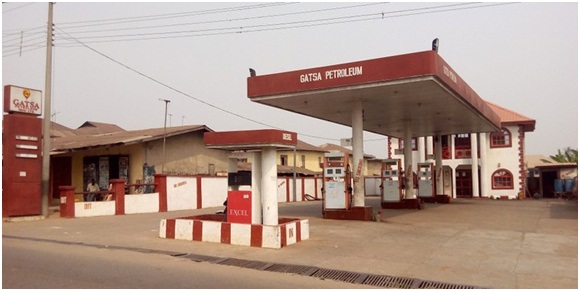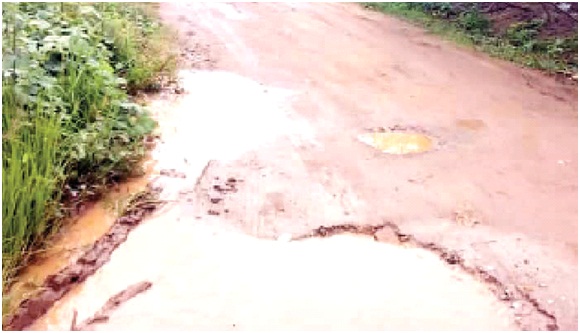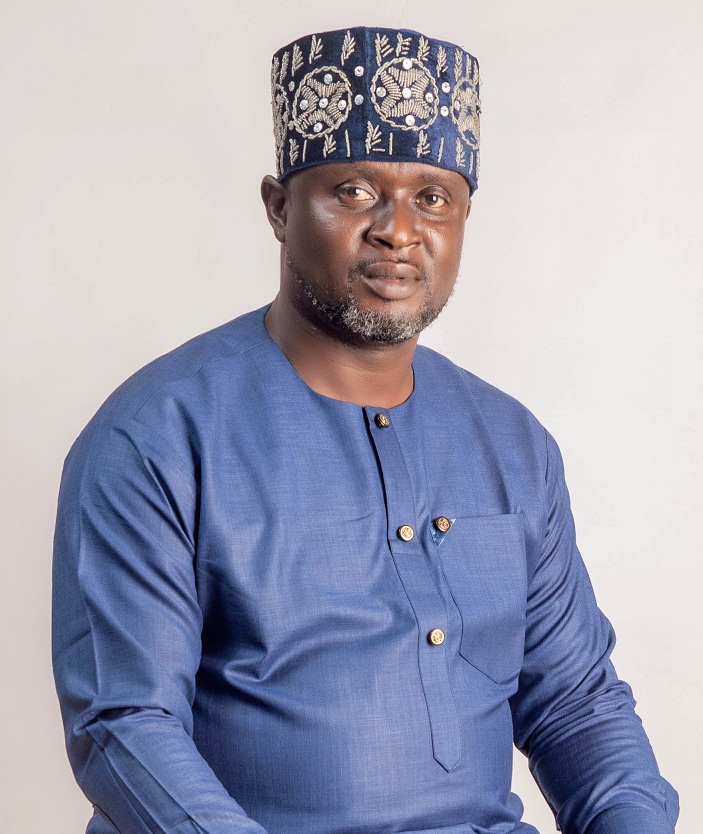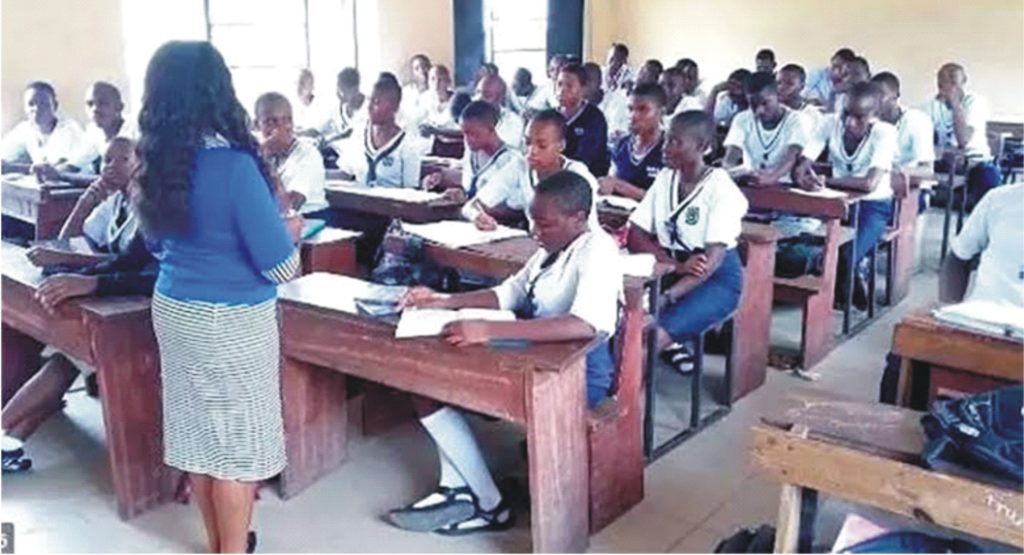UNIMED: Revolutionising medical education in Nigeria
By kayode Crown
|
The Ondo State University of Medical Sciences, Ondo, got the take off approval from the National Universities Commission in April, 2015, and is already the toast of accreditation teams for both its undergraduate and post graduate courses.
On recent visits to the Ondo State Governor, Oluwarotimi Akeredolu, SAN, accreditation teams from Medical and Dental Council of Nigeria (MDCN) and Faculty of Surgery from the West African College of Surgeon, the administration was praised for the wave of infrastructural development that the school had witnessed in its short time of existence.
The Registrar of MDCN, Dr Tajudeen Sanusi, who was represented by Dr Nnaemeka Nwakanma on the visit, said that he was pleased with the infrastructural upgrade and strategic positioning of the school for credible delivery of medical sciences education to the students.
He said: “Ondo State pioneered something unique to this part of the world by commencing the University of Medical Sciences, an institution uniquely designed to showcase the best of medical education with modern facilities.
“The Medical and Dental Council is elated and satisfied by the efforts being put in place by the Akeredolu-led administration towards ensuring that the University of Medical Sciences, Ondo City, remains the first institute specially established for medical training in Nigeria.
“At some points, we were worried as to the sustainability of this dream and we now see that however, it has shifted positively and the growth is remarkable. The university has come to stay and we are glad to be partners in the progress of the school.
“All eyes are on you to see what difference you will make with this experiment because this is a peculiar model never seen anywhere in Nigeria until recently when some people began to copy you.”
In his response, the governor said: “What we believe in, is putting in our best towards providing modern facilities so as to meet up with your requirements and make the project a reality.”
He expressed the continued commitment of the state to the school to for its sustenance.
When the accreditation team from West African College of Surgeons came to the state to accredit the post graduate training of surgeons at UNIMED, Akeredolu told them that “our driving force is that the pool of specialists at the State Specialists Hospitals in Akure and Ondo and the expertise of consultants at UNIMED coupled with the core competence of the university would serve to turn out the best of medical graduates.
“In view of the fact that the state government was no longer comfortable being the only state without a Teaching Hospital in Nigeria, the present administration would fill all gaps to ensure that UNIMED Teaching Hospital gets the needed accreditation to function as the centre of excellence.”
The leader of the accreditation team of the College of Surgeons, Professor Emmanuel Ezeome, commended the tremendous facility upgrade at UNIMED, which is far beyond what was there in 2015, the last time the team were here.
He observed that the backlog of salaries inherited by the administration have been fully paid and several infrastructural facilities now put in place. For this, they credited both the commitment of staff and the state government to see to the success of the institution.
The school has as its stated goal the focus of supporting Nigeria’s quest for high quality education service delivery, research and innovation in the medical sciences.
It has grown in leaps and bounds and now has expanded the number of faculties to include: Basic medical sciences, clinical sciences, sciences, dentistry, pharmacy, pharmaceutical sciences and public health.
It is rated as the third specialised medical university in Africa and the first specialised medical university to be accredited by the National Universities Commission, with Professor Friday Okonofua as the pioneer Vice chancellor.
As medical students moved from the pre-clinical stage of their studies to the clinical stage, it becomes necessary to make available a legally defined Teaching Hospital to further their studies.
In view of this, seven different health institutions in the state have been merged to form UNIMED Teaching Hospital.
They are: Trauma and Surgical Centre, Mother and Child Hospital, Kidney Care Centre, State Specialists Hospital Ondo, State Specialists Hospital Akure, Millennium Eye Centre and Dental headquarters in Akure. This is a necessary part of UNIMED getting full accreditation.
The Chief Medical Director of the UNIMED Teaching Hospital, Dr Oluwole Ige said that this was a necessary move to train medical students from 400 levels upwards.
The governor said “UNIMED is important and in our quest to ensure it stands I have approved the take-off grant” so that students in clinicals will successfully continue their programme.
Recently, also, the university announced the establishment of the faculty of Nursing Sciences, which is in the aftermath of the merging of the state’s School of Nursing and Midwifery to UNIMED.
With that move, the state school of nursing becomes the first in Nigeria to comply with the directive of the Nursing and Midwifery Council of Nigeria that all Schools of Nursing and Midwifery be absorbed to either an existing university or a polytechnic.
With the absorption of the school of nursing and midwifery into a degree awarding institution, the students would then obtain BSc certificates after the period of their training.
The Nursing and Midwifery Council of Nigeria in a letter of commendation said that the move by UNIMED to establish a Faculty of Nursing Sciences was heart-warming and expressed readiness to work with the school towards making excellence the hallmark of nursing education and practice in the state.
According to the University’s VC, Prof Okonofua, UNIMED has achieved much in three years to be an outstanding medical and health sciences university, locally, nationally and internationally, as it has become recognised for excellence and innovation in health education.
“It was only in April, 2015 that we got a letter from the NUC that allowed us to start this university with just five courses, and since then we have made many phenomenal milestones including the fact that we now have about fifteen courses across six faculties.
“In fact, our MBBS and BDS programmes have passed three major stages in seeking accreditation of the Medical and Dental Council of Nigeria and we are very hopeful to get full accreditation of the National Universities Commission.
“In University of Medical Sciences Ondo, we promote excellence in multidisciplinary research.
“In the next few years, when you are talking about multidisciplinary approach in medicine or health sciences, UNIMED will be the institution to visit because we work as a single family.”
When it comes to funding, according to him, the government is doing a lot, “but they cannot do it alone, so we embark on fund raising drive to support the government and I can tell you, a lot of people are coming on board to support the first university of medical sciences that is training health co-workers in a multidisciplinary way.”
He expressed appreciation to Governor Oluwarotimi Akeredolu for the financial, moral and leadership support to the university.
The university has big dreams for the future, including the commencement of the School of Public Health in the 2019/2020 session.
According to available information from the school, The Muhammed Ali Pate International School of Public Health at the UNIMED, Ondo State, will commence full activities in 2019/2020 academic session.
Prof Okonofua said that the establishment of the school, named after a former Minister for Health, is icing on the cake and a step towards improved health care policies and practices in Nigeria and in Africa as a whole.
Another revolutionary move that the school is embarking on is the start of an herbal medicine department.
The Nigerian Council of Physicians of Natural Medicine and Associations of Physicians of Alternative Medicine is to collaborate with UNIMED in this endeavour.
Underlining the importance of this move, The VC said: “most drugs used to treat malaria are roots and herbs taken from here, processed abroad and sold to us at high prices.
“The UNIMED senate has approved that herbal medicine be introduced before the end of the year (2018) and since we are the first to start this in the country, we are ready to collaborate with the Nigerian Council of Physicians of Natural Medicine and Associations of Physicians of Alternative Medicine in drafting the curriculum and harnessing needed resources to kick start the programme.”
UNIMED’s stated objective includes: To prepare students for leading professional roles in all disciplines in the health sector in Nigeria and globally; to offer the best tertiary healthcare (including preventive and curative care) for all forms of diseases, disabilities and deformities that are prevalent in Nigeria specifically, and throughout the African region broadly; to promote research and creative work for improving the health of Nigerians and the world at large; To develop human and physical resources of the university to some of the best attainable standards in the world; to promote the health and social well being of Nigerians through engagement, outreach services and public education.
UNIMED’s VC in a speech he delivered recently in Edo State, shared his experience and how he has been able to make a success of leading a young university from inception.
He posited that a new university must be driven by the emergence of a new idea on societal development and an analysis that indicates that such a new institution can help foster the social change that is required to rectify the situation.
“An important caveat in seeking to establish a new university is that such an institution must be focused in helping to solve a major developmental challenge in the country.”
He insisted that a new university must not be founded on whimsical and sentimental values that do not have a place for building the nation of our dream.
He said he has made an assessment of over 20 new universities in the country and found that many did not have strategic plans of action and that universities are being established by federal, states and private proprietors in this country today without adequate preparations made for sustainable funding.
“Indeed some universities are being established under the principle of commercialisation and the erroneous belief that they can be profit-making.
“In my review of over 20 newly established universities in Nigeria, none has adequate take-off grants for required infrastructure and human resources development and many has no definitive source of adequate future funding.”
Sharing his experience, he said: “my main recommendation, based on my experiences at the University of Medical Sciences is that a new university must not rely on funding from its proprietors alone, but must immediately work on establishing multi-sectoral funding outlets.
“We have established a full time advancement and fund raising unit, through which we established the Friends of UNIMED Fund, an international advocacy group for the university and have sourced funds from several international agencies. Through these efforts, we have built considerable support, which have enabled the university to overcome some of its immediate funding challenges.
“I strongly believe that despite the limited funds available, the proper disbursement of those funds and strategic use of the funds for key activities of the university are even more important, if critical milestones are to be achieved.
“University exists for teaching and research. Thus funds should be strategically disbursed to prioritise teaching and academic activities and less on administrative or mundane activities.”
In addition, he said that without an adherence to sound financial management policies, not much can be achieved even when funds become adequate for running the university.
The above seems to be the philosophical underpinning of his approach to leading UNIMED as its pioneer VC, and has ensured that the school moved so fast from the place of being an idea to a viable institution that is the toast of all.










